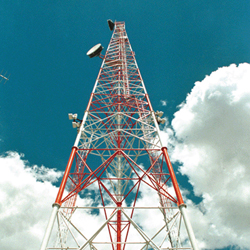Several telecom operators have responded positively to the U.S. spectrum policy.
Verizon Wireless welcomed the U.S. administration for laying out a clear path that will help bring more spectrum to consumers of wireless services, where it will allow the U.S. to maintain its global leadership position in wireless innovation.
In a communication, Verizon Wireless said the Presidential memorandum is another positive step toward setting a national spectrum policy.
“Further exploring ways for federal government-spectrum users to more efficiently use spectrum they have been assigned, as well as for developing appropriate sharing between commercial- and government-spectrum users, should bring much needed wireless spectrum to the consumer marketplace,” it said.
Verizon Wireless has invested in efforts to study how sharing in certain bands of spectrum might take place. “These are worthy efforts that should continue, and we are committed to this ongoing work with the administration, Congress and other players in the wireless market,” Verizon’s note added.
“The steps taken today lay the groundwork for tomorrow’s broadband future,” said Vonya McCann, senior vice president of government affairs at Sprint Nextel Corp.
President Barack Obama is directing federal agencies to look for ways to eventually share more of their radio airwaves with the private sector as the growing use of smartphones and tablets ratchets up the demand for spectrum, according to a memo released on Friday.
With blocks of spectrum reserved by dozens of government agencies for national defense, law enforcement, weather forecasting and other purposes, wireless carriers and Internet providers are urging that more spectrum be opened up for commercial use.
USTelecom President & CEO Walter B. McCormick Jr welcomed the move by the White House for its report acknowledging the important role that broadband service providers play in the health of the U.S. economy.
However, the administration is correct in recognizing that opportunities and challenges remain – and nowhere are these more pronounced than in rural America, where the Federal Communications Commission’s national broadband plan goals and its statutory responsibility to assure consumers access to advanced communications services remain unmet.
The directive sets up a Spectrum Policy Team that in six months will have to recommend incentives to encourage government agencies to share or give up their spectrum – something industry experts see as a critical step in opening more of the federally used airwaves to the private sector.
The FCC is now working on rules for the biggest-ever auction of commercially used airwaves, in which TV stations would give up and wireless providers would buy highly attractive spectrum. The auction is expected to take place in late 2014 or later.
“We hope that the FCC will view this report as an opportunity to revisit the aspects of its USF reform initiative that have proven problematical – resulting in uncertainty for rate-of-return carriers, diminished investment in certain rural areas, and cancellation of planned construction,” USTelecom President & CEO added.
“Though existing efforts will almost double the amount of spectrum available for wireless broadband, we must make available even more spectrum and create new avenues for wireless innovation,” Obama said in his presidential memo.






